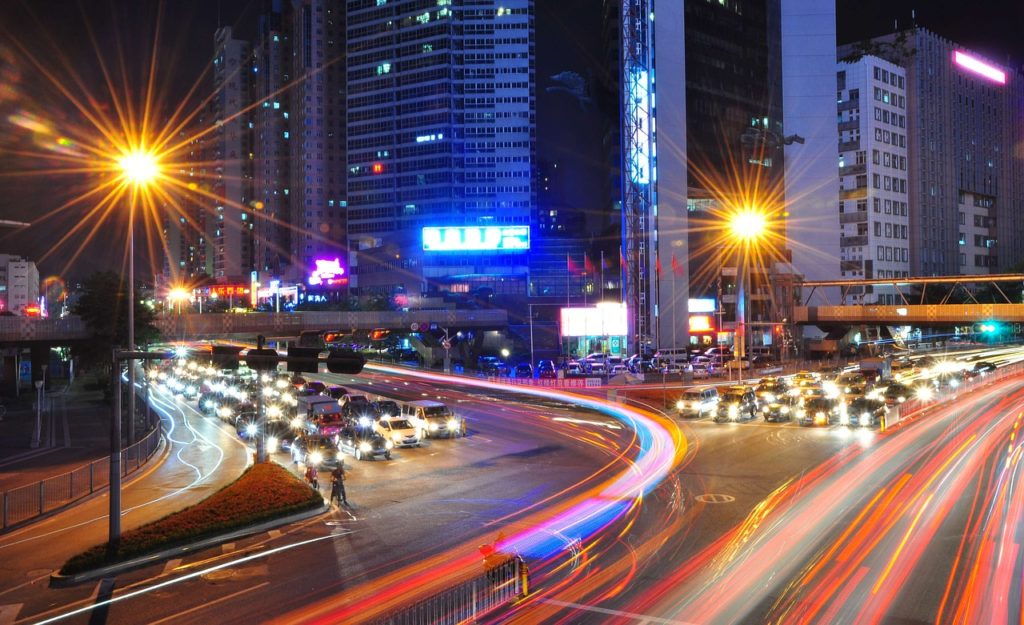In today’s China the domestic economy runs as voraciously as any free market capitalist society, albeit with strings attached by the Communist government. Successful companies that align with the government’s interests thrive thanks to added support. Companies that benefit the national economy, but don’t have an effect on the government can exist unabated. Companies that grow large but don’t work with the government cease to exist.
Here are the basic rules for foreign businesses:
- If a foreign owned business helps the nation’s economy and complies with government oversight it can stay (Microsoft).
- If a foreign owned business competes with an important domestically owned competitor the foreign business will have problems competing (Uber).
- If a foreign company is a first mover, disrupting or creating an industry, it will get the option to comply with government regulation. If it doesn’t a local competitor will and the foreign business will get shut down (Google).
These same rules apply to domestic companies as well, but local companies are well aware of how the game is played within China.
In many industries, especially commodities and the internet, it’s often winner take all (Mobike) or very close (Didi) and this competition forces the companies to get better.
As big foreign companies aren’t used to this kind of government involvement, the government often favors domestic competitors. Competition control ensures successful companies strengthen the government’s power, while making the free market more opaque.
China has created an artificial selection version of capitalism. Blocking non-cooperative foreign companies from operating in China has allowed domestic Chinese companies to replicate successful overseas business models. These domestic companies solidify their business model in China leveraging the huge domestic market and local competition to grow and evolve, receive serious funding from private or public sources, and invest heavily in product development. Through this protectionist approach, limited regulation, and drive to succeed many of these companies have outpaced their foreign competitors. This is a boon for the individual companies and a win for China.
The boundaries between big companies and government in China are thin. Successful businesses rely on the government to develop and in turn are used as an extension of government power. Companies that gather data about the Chinese population or could influence Chinese popular opinion are required to share this information and operate within government parameters. There are minimal rights to privacy in China as there are in Europe, and to a lesser extent the US.
Concerns about censorship and data collection resulted in all Google services and apps being blocked in China in 2010. With access to so much knowledge about each citizen and the power to influence them Google could pose a threat to the establishment. Since then Android phones sold in China have highly modified versions of Android that don’t include any Google apps (Maps, Search, YouTube, Play, etc).For the same reasons Facebook, Twitter, and others are banned as well. Each of those apps has a Chinese version which gets preloaded on Android phones sold in China.
I wrote an article for TechCrunch back in 2012 predicting that Android will change the global manufacturing landscape for China because with Android Chinese hardware manufacturers could focus on making great hardware, their strength, while relying on Google to manage the software. Chinese companies like Huawei, Vivo, Oppo, and many other mobile phone brands did just this, and earned sizaable market share globally at the expense of non-Chinese incumbent brands.
Now, suddenly, the biggest Chinese mobile phone brand, Huawei, isn’t able to put Android on their phones anymore, threatening their international business. If the ban doesn’t end Huawei will need to introduce an alternative to Android that the world accepts or face the end of their international consumer business.
The reason Huawei is no longer able to put Android on their phones is because some governments consider Huawei a national security threat. To prevent invasive threats China has been restricting foreign software for nearly a decade. Now a group of countries are starting to follow China’s precedent with the Huawei ban.
Just ten years ago, banning a Chinese company from the international marketplace would have had little effect on international tech development. But without Huawei, Western companies and countries are at risk of getting left behind. Here’s why:
The Chinese version of selective capitalism has been so successful that homegrown companies are becoming global innovation leaders. Even with the Huawei ban, this will continue.
The global competitiveness of Chinese companies is going to continue to grow. Electronics brands in China develop in an extremely competitive landscape resulting in more pressure to innovate. China’s ecommerce and logistics industries have leaped over the US. A friend of mine applying to become the head of online sales for a multi-billion dollar American electronics brand recently asked me what Chinese brand was doing best in this space. I found myself for the first time telling an American how to model their business from a Chinese company. The progress of Chinese innovation is becoming increasingly noticeable.
Huawei has more 5G network patents than any other company.
If countries start banning Huawei’s network infrastructure equipment, will other companies get a free pass to infringe on Huawei’s patents (as overseas companies face if they don’t register their IP in China) or will they need to come up with alternative technology, setting back the 5G roll out for years? Instead of countries having to decide whether to permanently block Huawei the world should collaborate to create globally accepted standards for transparency of technology to ensure fair play. That way a company that follows the global standards can avoid worrying about what each government decides.
The world would benefit from fair competition and rewarding the winners.
Huge and rapid advances in technology have changed the world over the past 10 years. Those changes predicate even bigger changes in the near future with the growth of IoT, faster data speeds, and increases in processing power. World leaders must improve their knowledge about the power of big data, personal data, connected networks, and other advances which will emerge and can make our world even more amazing. It’s time to create a global framework that governs transparency, rules for legal data collection, and other guidelines for innovation. That way no matter where the company is from the rules are clear and consistent. The current trend of fragmentation amongst groups of allied countries hampers economic and technological development and creates tension.
From the perspective of smaller companies manufacturing custom Android devices to deliver innovative services, transparency and security standards may become a new, yet justified, hurdle in product development. For now codes of conduct largely depend on the ethics of the individual companies or geographies in which they operate. Life is a lot more fun when we’re able to count on each other instead of worry about each other, a globally accepted standard will help bring us together.





